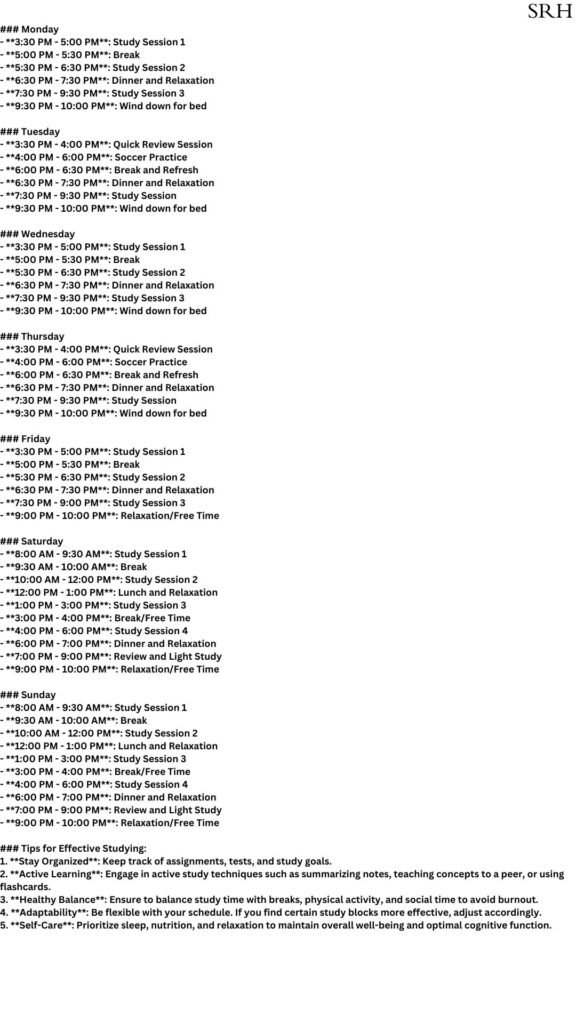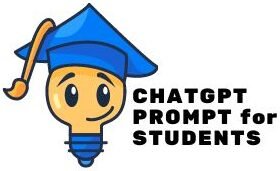Hey there, study champions! 📚✨ Feeling swamped by your coursework?
Don’t worry, you’re not alone in this academic adventure.
In this journey, I will help with 5 effective ChatGPT prompts that will transform how you plan your study schedule.
Get ready to meet your new AI study buddy!
Why AI-Powered Scheduling?
Before we jump into the prompts, let’s talk about why AI can be a game-changer for your study routine:
• Personalization: AI adapts to your unique needs and preferences
• Efficiency: Save time planning so you can focus on actual studying
• Flexibility: Easily adjust your schedule as priorities shift
• Creativity: Get fresh ideas for structuring your study time
Now, let’s get to those prompts!
5 Effective ChatGPT Prompts
1. The Time Audit Prompt
Prompt:
“I’m [insert grade/class] student. I need to create a study schedule. First, analyze my typical week. I have classes on [list your class schedule]. I also have [list other commitments like work or extracurriculars]. I usually sleep from [your typical sleep schedule]. Based on this information, identify potential study blocks and suggest a weekly schedule that balances study time with breaks and self-care.”
Why it works: This prompt helps you visualize your available time and ensures you’re creating a realistic schedule that accounts for all your commitments. See the example:
Example:
“I’m a 10th-grade student. I need to create a study schedule. First, analyze my typical week. I have classes from Monday to Friday, 8 AM to 3 PM. I also have soccer practice on Tuesdays and Thursdays from 4-6 PM. I usually sleep from 10 PM to 6 AM. Based on this information, identify potential study blocks and suggest a weekly schedule that balances study time with breaks and self-care.”
Output:

2. The Subject Prioritizer Prompt
Prompt:
“I’m [insert grade/class] student. I have exams coming up in [list your subjects]. Rate these subjects from 1-5 based on difficulty and importance, with 1 being least difficult/important and 5 being most. Then, create a study schedule for the next two weeks that allocates more time to higher-rated subjects while still covering all subjects adequately.”
Why it works: This helps you focus your energy where it’s needed most, ensuring you’re prepared for all your exams without neglecting challenging subjects. See the example:
Example:
“I’m a college freshman. I have exams coming up in Calculus, World History, Biology, and English Literature. Rate these subjects from 1-5 based on difficulty and importance, with 1 being least difficult/important and 5 being most. Then, create a study schedule for the next two weeks that allocates more time to higher-rated subjects while still covering all subjects adequately.”
3. The Learning Style Adaptor Prompt
Prompt:
“I’m [insert grade/class] student. Based on the following learning styles: visual, auditory, reading/writing, and kinesthetic, suggest study techniques for each of my subjects [list subjects] that cater to different learning styles. Then, create a varied study schedule that incorporates these techniques.”
Why it works: By incorporating various study methods, you’ll keep your brain engaged and improve information retention. See the example:
Example:
“I’m an 8th-grade student. Based on the following learning styles: visual, auditory, reading/writing, and kinesthetic, suggest study techniques for each of my subjects (Math, Science, English, and Social Studies) that cater to different learning styles. Then, create a varied study schedule that incorporates these techniques.”
4. The Procrastination Buster Prompt
Prompt:
“I’m [insert grade/class] student. I often struggle with procrastination. Create a study schedule that breaks tasks into smaller, manageable chunks. Include specific strategies to stay motivated, like the Pomodoro Technique or reward systems. Also, suggest ways to make my study environment more conducive to focus.”
Why it works: This prompt addresses the common issue of procrastination head-on, providing practical strategies to keep you on track. See the example:
Example:
“I’m a high school junior preparing for SATs. I often struggle with procrastination. Create a study schedule that breaks SAT prep tasks into smaller, manageable chunks. Include specific strategies to stay motivated, like the Pomodoro Technique or reward systems. Also, suggest ways to make my study environment more conducive to focus.”
5. The Flex Schedule Creator Prompt
Prompt:
“I’m [insert grade/class] student. Create a flexible study schedule template that I can adapt weekly. Include fixed blocks for non-negotiable commitments and suggest ways to allocate the remaining time between study sessions, breaks, and buffer time for unexpected tasks. Provide tips on adjusting this schedule when things don’t go as planned.”
Why it works: Life is unpredictable, especially for students. This flexible approach ensures you can stay on top of your studies despite surprises. See the example:
Example:
“I’m a graduate student working on my thesis. Create a flexible study schedule template that I can adapt weekly. Include fixed blocks for my part-time job (20 hours a week) and suggest ways to allocate the remaining time between thesis work, class assignments, breaks, and buffer time for unexpected tasks. Provide tips on how to adjust this schedule when things don’t go as planned.”
Remember, while ChatGPT is a powerful tool, it’s just that – a tool. Use these prompts as a starting point, but don’t be afraid to adjust based on what works best for you. The most effective study schedule is one that you’ll actually stick to!
Pro Tip: Revisit these prompts regularly, especially at the start of a new semester or when your workload changes significantly. Your perfect schedule may evolve over time, and that’s okay!
Want to dive deeper into effective studying? Check out these resources:
1. “Make It Stick: The Science of Successful Learning” by Peter C. Brown
A game-changing book on evidence-based learning techniques.
A website dedicated to making scientific research on learning more accessible to students and teachers.
3. Coursera’s “Learning How to Learn” course
A free online course that teaches you how to learn effectively, based on neuroscience.
Fantastic advice on productivity and deep work, especially valuable for students.
5. “The Procrastination Equation” by Piers Steel
A deep dive into the science of procrastination and how to overcome it.
Remember, the goal isn’t perfection – it’s progress. So fire up ChatGPT, try out these prompts, and watch your productivity soar. Happy studying!





